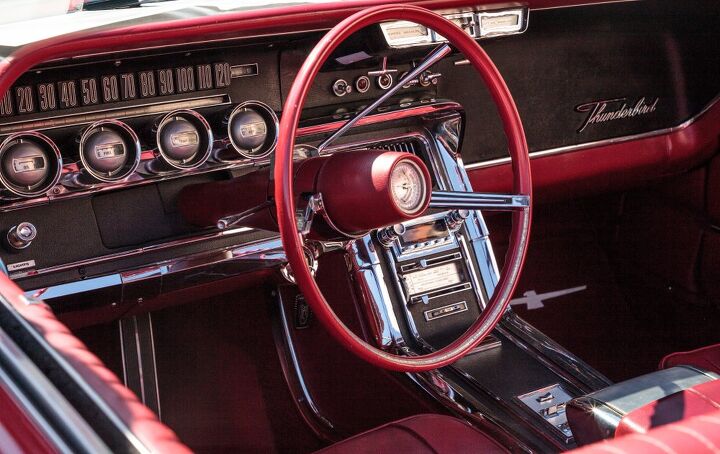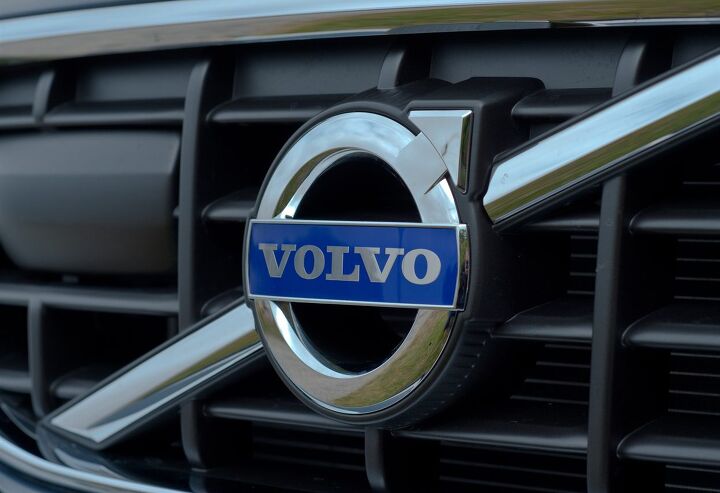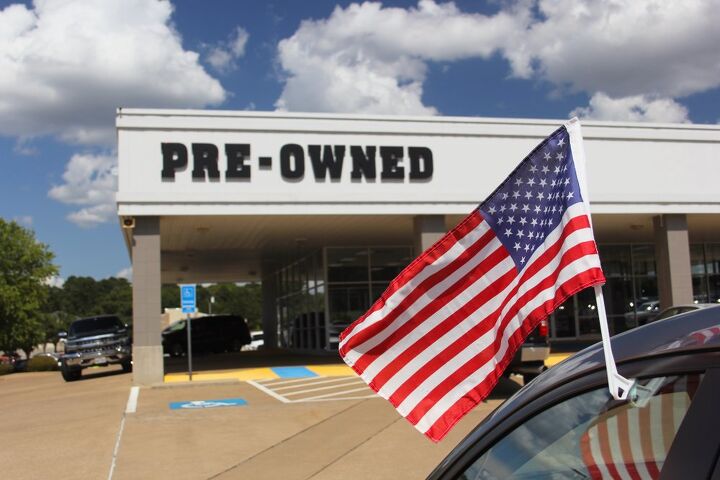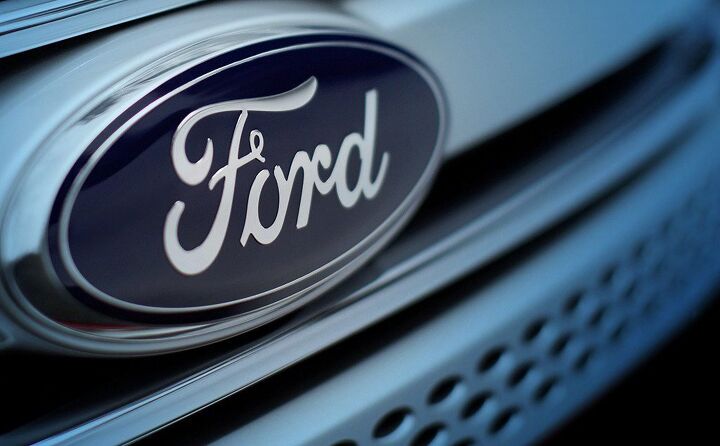#IndustryTrends
Penske & Cox Premiere AI Based Auto Sales Platform With Confusing Name
Years ago, waiting for a haircut, dental appointment, or psychological evaluation meant thumbing through a paperback filled with local listings of automobiles you had convinced yourself you might be in the market for. While primarily an exercise for wasting one’s time, there was always a chance you’d run to a payphone or whip our your Nextel to contact the seller so you could begin the delicate dance of commerce.
Emerald-Colored Glasses: Just How Green Are EVs?
As the resident sourpuss, I make it my business to complain about every industrial hypocrisy that crosses my path and the automotive sector has kept me so busy that there’s hardly any time left to address my own failings. Though I do have to confess that I sometimes feel guilty about how frequently I’m compelled to gripe about electric vehicles. Provided that you’re willing to work with their charging limitations and less-than-impressive ranges, EVs have a lot to offer even in their current state. But the way they’ve been marketed has been so consistently disingenuous that I often end my days on the cusp of a frustration-induced aneurysm.
The winds appear to be changing, however.
After years of watching the industry bang its head against the wall, the media seems prepared to shift its position. Accelerated adoption of pure electrics doesn’t seem to be happening and too many EV startups have ended up being little more than an opportunity for investors to throw away money. Increasingly fewer people ask me about battery-powered cars in a way that suggests true enthusiasm. Excitement has given way to dubiousness as more people have begun to ponder if electrics are really all they’re cracked up to be.
Driving Dystopia: German Automakers Keep Reimagining Vehicle 'Ownership'
Volkswagen recently announced that it plans on making massive amounts of money by introducing more vehicles with over-the-air updates (OTAs), many of which will be able to store and transfer personal profiles so that users can effectively just rent their vehicles for eternity. Additionally, VW has suggested future models will have ability to lock features (that have already been physically installed) behind a paywall that users can unlock via subscription services — things like heated seats, satellite navigation, or even the vehicles top speed.
“In the future, our customers will buy, lease, share or rent cars just for a weekend, and we can use software to provide them with whatever they need over the air,” VW brand’s sales chief Klaus Zellmer said during an online presentation held on Tuesday. “The ID family has been designed for further development, with OTA updates to improve the software’s performance and tailor it to our customers’ needs.”
Stop Copying Me: Is Elon Musk the New Steve Jobs?
The level of influence Elon Musk has is truly staggering, though not entirely without precedent. Steve Jobs was similarly famous and his whimsical marketing style ended up being so effective that you would see doppelgangers embracing his tactic of selling people an experience, rather than focusing wholly on the product. Minus the black turtleneck, some might even argue Musk has aped his style — perhaps while noticing similar sales tactics embraced by Ron Popeil, David Ogilvy, or P.T. Barnum.
A good pitchman is one that can adapt tried-and-true methods from their forebears while having enough unique flare not to come across as derivative. But not everyone has the magic and we’re left with a sea of less enduring (and endearing) copycats. Notice how practically every electric vehicle manufacturer seems hellbent on becoming the next Tesla, rather than adopting a corporate personality of their own.
Analog Revenge: Chip Shortage Forcing Automakers to Ditch Tech
After months of seeing factories idled, it seems that the global semiconductor shortage has encouraged the automotive sector to rethink some production strategies. Numerous brands have opted to strip vehicles of specific features to help offset the ever-worsening chip problem, occasionally supplanting them with older hardware.
Well, well, well. It looks like the push into electromobility hasn’t gone quite as planned and the industry has come crawling back to analog in some cases. Though it would be premature to break out the campaign and declare the old ways superior for all time. The resurgence of analog hardware is likely to be short-lived, ending the second the semiconductor shortage lets up. As much as your author wants to believe the industry will learn a lesson about not putting all your eggs in one basket, it didn’t seem to in the last century and is unlikely to come around during this one.
Consumer Reports Worried Tesla Could Spy on Customers
Consumer Reports has taken umbrage with Tesla’s new cabin camera designed to monitor the driver by suggesting there might be some privacy concerns. While that sounds like the understatement of the year, we’ve seen other companies (e.g. Cadillac) deploy similar devices with little pushback. Uncoverable lenses on our laptops and phones are creepy enough. When the auto industry starts affixing driver-monitoring cameras to the dashboards of automobiles, you have to sit back and ask yourself how much longer you’re willing to be a party to the prologue for George Orwell’s Nineteen Eighty-Four.
Trapped like a dog inside the hot car of progress, we’ve been attempting to honk the horn until someone pays attention. Mercifully, Consumer Reports doesn’t seem to have forgotten its roots in consumer advocacy and is walking up to our window with a rock. It’s demanding more privacy protection for vehicle operators, and not just from a single automaker.
Report: Volvo Dealers Respond Negatively to Digital Retail Strategy
Last week, we discussed Volvo Cars’ plan to transition to an online sales model as a larger quotient of its product becomes electrically driven. As luck would have it, the concept hasn’t been a runaway success with auto retailers. Vehicles becoming increasingly digitized, combined with the unparalleled consumer access offered by the internet, has made numerous manufacturers wonder why the dealership role couldn’t be diminished. After all, Tesla has done alright without a traditional sales network.
But Tesla didn’t have a gross of existing showrooms ready to make a fuss. Volvo has nearly 300 and dealerships are reportedly voicing their concerns as the manufacturer does what it can to assuage fears about the possibility of their being put out of businesses in the coming years.
Another One: FedEx Vows to Become Carbon Neutral by 2040
FedEx had kneeled before mankind, vowing to become a carbon-neutral business by 2040. That’s roughly eight years longer than it’ll probably take most of the population to forget that the promise was ever made. But this is the way of the world and we wager it won’t be long before it’s just easier to list the companies and governments that have not made informal, often empty commitments about the environment.
But, before we throw FedEx into the camp of blatant placation, let’s see what it actually has planned.
Audi Boss Paints Gloomy Picture for Small Automobiles
While Europe often appears as a safe haven for punchy subcompacts, the reality is that the continent’s biggest sellers happen to be reasonably sized automobiles equipped with a tepid engine option. The Volkswagen Golf, Toyota Corolla, and Škoda Octavia (especially if you happen to travel through any former satellite states of the Soviet Union) are absolutely everywhere. Europe also has a strong taste for many of the compact crossovers that are popular here in North America, giving subcompacts an increasingly small share of the overall market. And it’s projected to get smaller (globally) under the existing European regulations.
Pint-sized economy vehicles aren’t exactly profit leaders for automakers and their margins are only going to become slimmer. The EU is now reaching a point where building them won’t make sense, as tailpipe regulations will eventually force some amount of electrification. This will jack up their price to a point where the kind of people that might have been considering them will probably shop used. But don’t take our word for it; Audi CEO Markus Duesmann recently said this is probably what will kill the A1.
NADA Chairman Doesn't Seem to Like Traditional Auto Dealers Much
Unless you happen to be the primary stakeholder in Amazon, 2020 probably hasn’t’ been the kind of year you’re likely to miss. However, there is no shortage of lobbyist groups and trade organizations willing to praise it as a triumphant time for modernity. This includes the National Automobile Dealers Association (NADA) Chairman Rhett Ricart, who believes digitizing the industry is the best pathway forward. While he hasn’t forgotten that pandemic-related lockdowns closed showrooms and factories, resulting in extremely lean inventories and weak sales, he claims it has accelerated everyone’s willingness to utilize online sales formats.
But there’s little reason to assume such a move would be better for dealerships from our vantage point. Haggle-free, direct pricing and ordering over the internet removes a lot of what the showroom does. This new model runs the risk of obliterating smaller storefronts and relegating the rest into glorified service centers doubling as a delivery hub.
Ford Returns to Monthly Sales Reporting
Over the last few years, the brunt of the automotive industry gradually swapped to quarterly sales reporting. This includes Ford Motor Co., which claimed ditching the monthly model helped smooth out variances caused by fleet orders. Most automakers gave similar answers, suggesting quarterly updates would actually paint a more accurate picture of their overall health — likely hoping this would discourage investors from being scared away during a particularly rough month.
But Ford has reportedly had a change of heart and is moving back to monthly updates. While we’re happy to see it bucking the trend, it’s curious to see any automaker doing so while the industry is so vulnerable to anomalies created by government lockdowns.
Reeling From Global Health Crisis, Dealers Embrace Online Sales
Auto dealers and manufacturers around the globe have spent the past several years examining the usefulness of digital car sales, but the practice hasn’t been embraced as warmly in the United States, where state franchise laws often prohibit direct sales from automakers to anybody but a licensed auto dealer. Critics say this allowed retailers to become middlemen that customers are forced to haggle, while advocates explain that the system promotes U.S. jobs and provides a local resource for those needing repairs.
Neither are incorrect, yet dealerships have continued to buck online sales, even after manufacturers attempted to work with them on various pilot programs.
With COVID-19 keeping a large portion of the American population at home, dealers are revisiting online sales as a way to cut their losses. Digital transactions now look to be a necessity if shops hope to survive a prolonged pandemic. While many see this as a temporary measure, once the genie is out of the bottle, he’s difficult to put back inside… and may be far less benevolent than we’d like — even if we’re desperately in need of one of those wishes.
Could Coronavirus Complications Make AVs More Popular?
As the coronavirus epidemic scares populations out of stores, transportation hubs, and stock markets, autonomous vehicles may be getting a leg up in China. Bloomberg reports that Neolix, an autonomous delivery company based in Beijing, has seen a surge in demand as people opt to stay home (or are forced into quarantined by the Chinese government). Founder Yu Enyuan said the startup has booked orders for more than than 200 autonomous delivery pods since knowledge of COVID-19 became public — noting it had only produced 125 units in the eight months leading up to that.
Thanks to being overhyped by an industry that wasn’t anywhere near as far along as claimed, autonomous vehicles haven’t earned a lot of love lately. Yet Neolix’s minor victory suggests they may have useful applications that previously went ignored. In the realm of humanoid robotics, the goal if often to design a platform that can successfully fill in for a living, breathing person when the surrounding environment becomes too dangerous. Why not for AVs?
It's Payback Time: Right-to-repair Movement Targets John Deere
With the California Farm Bureau effectively giving away the right of farmers to repair their own equipment without involving the distributor in the spring of 2019, the right-to-repair movement fell back on its heels. Horrified by the ground lost, the group has rallied to better incorporate those hoping to fix or modify mobile devices and automobiles. Despite being disparate products, members share a common goal of returning control to consumers and preventing various industries from having a stranglehold on products they were supposed to relinquish ownership of when sold.
Hoping to better illustrate the plight of farmers, Bloomberg published an article outlining one man’s struggle with John Deere. Kevin Kenney is a Nebraska-based engineer who’s also a member of a grassroots campaign to undermine the corporate mandate against repairing its tractors. He believes farmers owe it to themselves to know how to fix their own equipment or risk finding themselves perpetually at the mercy of the manufacturer — while losing the skills to be self-reliant.
Why should you care? It’s presumed automakers will follow a similar business plan as vehicles become increasingly networked and electric, and as executives redefine what constitutes ownership while using proprietary software as their shield. Pretty much exactly what John Deere is doing.
Ford: Future Performance Less About Numbers, More a State of Mind
Dave Pericak, former head of Ford Performance and now responsible for the brand’s icon models, told CNET on the sidelines of the Chicago Auto Show that evolving environmental regulations have forced the automaker to reassess how it views performance.
“A lot of countries are changing regulations so quickly, and so much, they’re almost forcing the performance products out,” he said.
“Our job is going to be two-fold,” Pericak continued. “One is to figure out how to continue to make performance that will exist in some of these regulated countries, even our own, and how do you do it so it’s a global offering?”
It’s a good question. Environmental regulations have indeed forced automakers to downsize displacement and re-familiarize themselves with turbocharging. Electrification is an option growing in popularity too, with many global automakers tossing battery packs into vehicles of all sizes at no small cost to themselves.






























Recent Comments